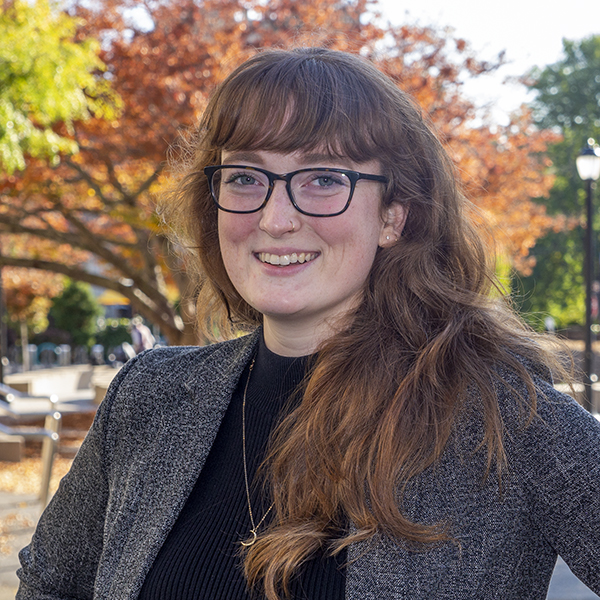 Education: American University (B.A.)
Education: American University (B.A.)
Affiliations: Co-editor-in-chief of Berkeley Journal of Gender Law and Justice; Mock Trial; Death Penalty Clinic; Supervising editor at California Law Review; BLASTlanta; Berkeley Immigration Group; Berkeley Anti-Trafficking Project
I wanted to attend a school that focused on public interest but was still deciding between a few. By coincidence, while I was deciding, I had a law professor in an improv class I was teaching. He told me his friends who taught at Berkeley Law were “some of the happiest people in the legal profession.” That sounded like a place I wanted to be.
I didn’t go into law school thinking, “Oh, wow, I can’t wait to work on some feminist legal scholarship!” But I went to a bunch of happy hours, as you do when you’re 1L, and the Berkeley Journal of Gender Law and Justice (aka Gender Journal) was the best happy hour I went to. Everyone was smart, and weird, and funny, and kind, and they all had interests I’d never heard of before. They all wanted to make the world a better place and were going about it in different ways. So I went to the first meeting and just kept on showing up.
Gender Journal publishes legal scholarship at the intersection of gender with one or more axes of subordination, including, but not limited to, race, class, sexual orientation, and disability. Gender impacts everything, so the scholarship we publish is broad, covering everything from global warming, to trans and intersex representation, to vegan feminism, to housing discrimination, to standing for abortion providers.
Something I love about Gender Journal is that we are the only journal on campus that chooses articles by a completely democratic process. Most journals have an articles committee, and they’ll read a bunch of articles and vote on what gets in. But since Gender Journal was founded on the idea that women are not a monolith, it’s only logical that we couldn’t possibly fulfill the journal’s mission if only a few people picked the articles. The entire Gender Journal membership reads every submission and votes on what we should publish.
These article discussions really helped me through 1L. As a 1L, you read these terrible cases in your foundational, doctrinal classes–cases that were obviously based in prejudice with an eye towards subjugation. But your professors never squarely address this. After a week or so you just want to scream. Article discussions meant I could go into this room and talk about an article that called these problems in the law out. And being able to talk about these issues with my peers was soul-soothing. It was just a really great space.
Now, as co-editor-in-chief, Jessica (Williams ’21) and I oversee all of the operational facets of a journal—the production calendar, deadlines, substantive edits on a piece, cite checking, running meetings, events, etc. While we do this work that will further social justice in the future, it’s important to us that we further social justice now. We’ve shared educational resources and ways for people to get involved in social justice, set up protest groups, and offered our members the opportunity to fulfill journal obligations by protesting or doing voter protection and outreach.
We updated our website over the summer and launched a blog. We’ve also really tried to up our social media engagement.
Incoming students should really work to find their people. And normally, you think of affinity groups for that. And that’s a good place to start. But because of Gender Journal‘s mandate, it becomes an affinity group for people who want to leverage the law for good. If that’s what you come to school wanting to do, and you don’t mind reading legal scholarship, Gender Journal is a really good way to do that. If you think you’re interested in joining, check us out @genderlawjustice or online at genderlawjustice.org.